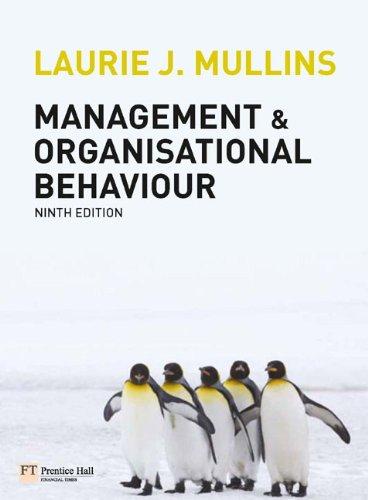Week nine of The Apprentice, broadcast by the BBC on 20 May, saw Ben Ive got a
Question:
Week nine of The Apprentice, broadcast by the BBC on 20 May, saw Ben ‘I’ve got a scholarship to Sandhurst’ Clarke finally dismissed from the show. The decision came as quite a shock to the other contestants and probably most viewers. Why did Sir Alan Sugar fire Clarke? He was no more culpable than his teammates for the loss in the latest task. Maybe Sugar was taking into account Clarke’s previous behaviour on the show. Was he too arrogant? He took the art of self-acclaim to a new high. Maybe it was because of Clarke’s habit of aggressively blaming everybody else in the boardroom for the things that had gone wrong. Or was it because of his annoying habit of shouting ‘Can I just finish’?
Strangely, it appears these were not factors in Sugar’s decision. At 22, Clarke was the youngest of the show’s candidates. Maybe Sir Alan Sugar considered he was too young. Certainly, in his exit interviews, Clarke seemed to put his dismissal down to being ‘too young’ and ‘too inexperienced’. Having chosen to try and gain employment via a reality TV show, Clarke does not have the benefit of protection against the potentially discriminatory reason for his exit. In the real employment world the number of age discrimination cases is taking off. The employment tribunal statistics for the period April 2007 to March 2008 show 2‚949 age discrimination claims compared with only 972 in 2006/2007, a three-fold increase, and the number of claims has continued to rise.
Being inexperienced, rather than too young, can legitimately mean candidates will be out of their depth in a new position. However, employers should take care when setting out their reasons for selection. It is not just older workers that can claim protection under the age discrimination laws – younger workers are also protected and any employer who turns down candidates just because of their age could find itself in trouble. A recent tribunal decision shows the risks that employers face. In Thomas v Eight Members Club and Killip (ET/2202603/2007), a 19-year-old was rejected after a four-month probationary period. The employer alleged that the decision was based not on her age but on the fact that she had made mistakes during the probation period; but the tribunal found evidence suggesting the employer had considered there might not have been a problem if she had been a few years older. It concluded that the club had discriminated against the employee and awarded her £1,500 for injury to feelings.
This highlights the danger of employers making assumptions about experience, age and capability. Employers may want candidates to have a defined number of years’ experience but this type of specification will rule out candidates from certain age groups and may be challenged. An employer may state that at least five years’ experience is required. But would three years’ experience of an exceptional nature with a market-leading competitor be sufficient to give the candidate the ability to do the job?
Employers should establish from the outset what specifications are justified to guard against challenges to the process. The only way to do this is to analyse the person and job specification. Identifying the key talents required for the job, rather than the years of experience it needs, will draw the focus away from issues of age discrimination and stereotypical assumptions.
Discussion questions
1. What does the article tell us about the relative importance of personality, ability and experience in the selection process?
2. Explain which of the three you think is the best predictor of job performance, and why.
3. Critically review the likely impact which age discrimination legislation and the increasing number of tribunal cases might have on managerial attitudes to workplace diversity more generally.
Step by Step Answer:

Management And Organisational Behaviour
ISBN: 9780273728610
9th Edition
Authors: Laurie J. Mullins, Gill Christy





